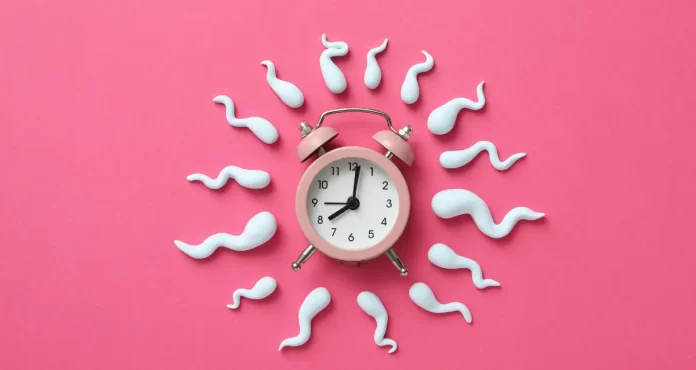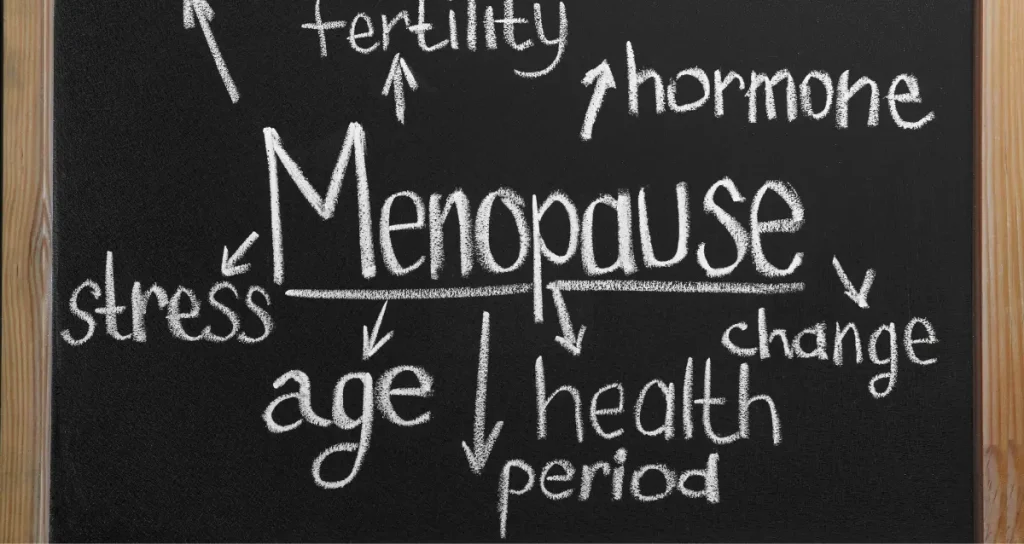
When does a woman stop ovulating, and how does her reproductive system change as time goes on? Ovulation is a pivotal aspect of the female reproductive system, controlling the ability to get pregnant naturally. Do you plan on having kids but you’re worried about ovulation ceasing? Here we explore when women stop ovulating, and what role ovulation plays in a woman’s ability to conceive. Is it really that important?
What do you need to know about the ovulation process?
Ovulation is a process in which women release a mature egg from the ovaries during each menstrual cycle. Most women will typically have a 28-day cycle, and ovulation occurs around the 14th day. There is a period of a few days around ovulation when it’s the best time to have intercourse to conceive. However, some women with health conditions, like Polycystic Ovary Syndrome (PCOS), may have a longer menstrual cycle or an irregular cycle. This makes it more difficult to predict the ovulation date, in turn making it harder to know when the best time to conceive is not so great if you’re trying to start or expand the family!
What can influence ovulation?
If you’re trying to get pregnant but you’re worried something is going on or you’ve been trying for a whole year without any luck (or six months if you’re over the age of 35), it might be time to look into some reasons as to why this is going on. There are many lifestyle factors and health issues that can influence ovulation. For example, you could have a hormonal imbalance, or be suffering from the impact of severe stress, illness, or environmental factors like toxin exposure. Hormones such as estrogen and progesterone both play key roles in regulating the menstrual cycle and ovulation; any disruption to these can affect your menstrual cycle.
Ovulatory challenges can significantly hinder conception due to the pivotal role ovulation plays. Some common conditions that can influence ovulation include (but are not limited to):
- PCOS (one in 10 women in the UK have PCOS)
- Primary Ovarian Insufficiency (POI), which is characterised by the absence of eggs and diminished hormone production
- Thyroid conditions can prevent the egg from being released from the ovaries
- Sexually Transmitted Infections (STIs) can cause inflammation which can cause scarring and damage to the fallopian tubes and ovaries, preventing the egg from reaching the uterus.
The link between age and ovulation
Age plays a crucial role in the reproductive system for both men and women. Although it’s often thought that men can become fathers at all stages of life, their fertility does indeed decline as they age. This decline happens much quicker for women, and reproductive capacity diminishes.
Women are born with a finite number of eggs in the ovarian follicles, and as women get older, the quantity and quality of these eggs decline naturally. At around age 30, the number of eggs starts to decline and this decline speeds up significantly when women reach the age 35, up until the point of menopause when periods stop. If you are in your late thirties to early 40s, your odds of conceiving naturally are quite low (though not impossible). Once a woman reaches menopause she will not be able to get pregnant.

What you should know about menopause and cessation of ovulation
Most women will reach menopause at age 51 but it can occur any time between the ages of 45 and 55. Menopause is defined as the 12 months after the last period. The menopause marks the end of a woman’s reproductive years and signifies the cessation of ovulation. It also means the menstrual cycle stops permanently.
The impact ovulation has on your body
Understanding more about your body can help improve your chance of conception. You may have read about or heard people referring to the ‘fertile window’. This refers to a short period during the menstrual cycle when it is possible to get pregnant. This correlates with when the egg is released from the ovaries.
To calculate your fertile window, you first need to understand your cycle length. To work this out, count the number of days between the first day of your last period and the day before your next period. This is your cycle length. Subtract 12 to 14 days from the end of your cycle. This is when you are most likely to ovulate. Your fertile window is considered to be a few days on either side of this.
If you’re unsure or are having trouble calculating because your period is irregular, there are other signs to look out for including changes to the texture of your cervical mucus. Throughout the month it will be a sticky white color but around the time of ovulation the texture changes, becoming thinner and clearer which makes it easier for the sperm to swim through.
Can fertility be an issue for men as well?
Although ovulation occurs solely in women, both genders can have issues with fertility.
Men typically experience a later onset of changes in sperm characteristics. Indeed, as men age, there’s an elevated risk of genetic defects in their sperm. Aging men may also develop medical conditions that can negatively impact sexual and reproductive function. If a man encounters issues with desire or erectile function, seeking treatment is the first place to start in terms of getting help, and can be linked to low testosterone levels.
Have concerns about ovulation? Here’s what to do if you’re trying to get pregnant
If you’re ready to start a family it’s important to address any concerns about your fertility early on. Talking to a doctor or a fertility expert is highly recommended. This IVF clinic in London was founded in 2004 and offers a full range of treatments for infertility, including IVF, ICSI, and egg freezing. With a thorough and careful approach, you can still conceive, even with ovulation issues. After a full medical history and fertility tests, your fertility doctor can guide you to success.
FURTHER READING









